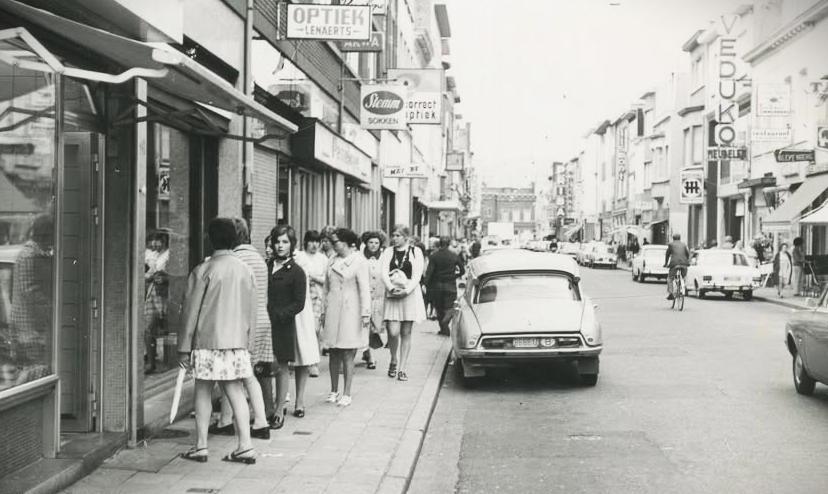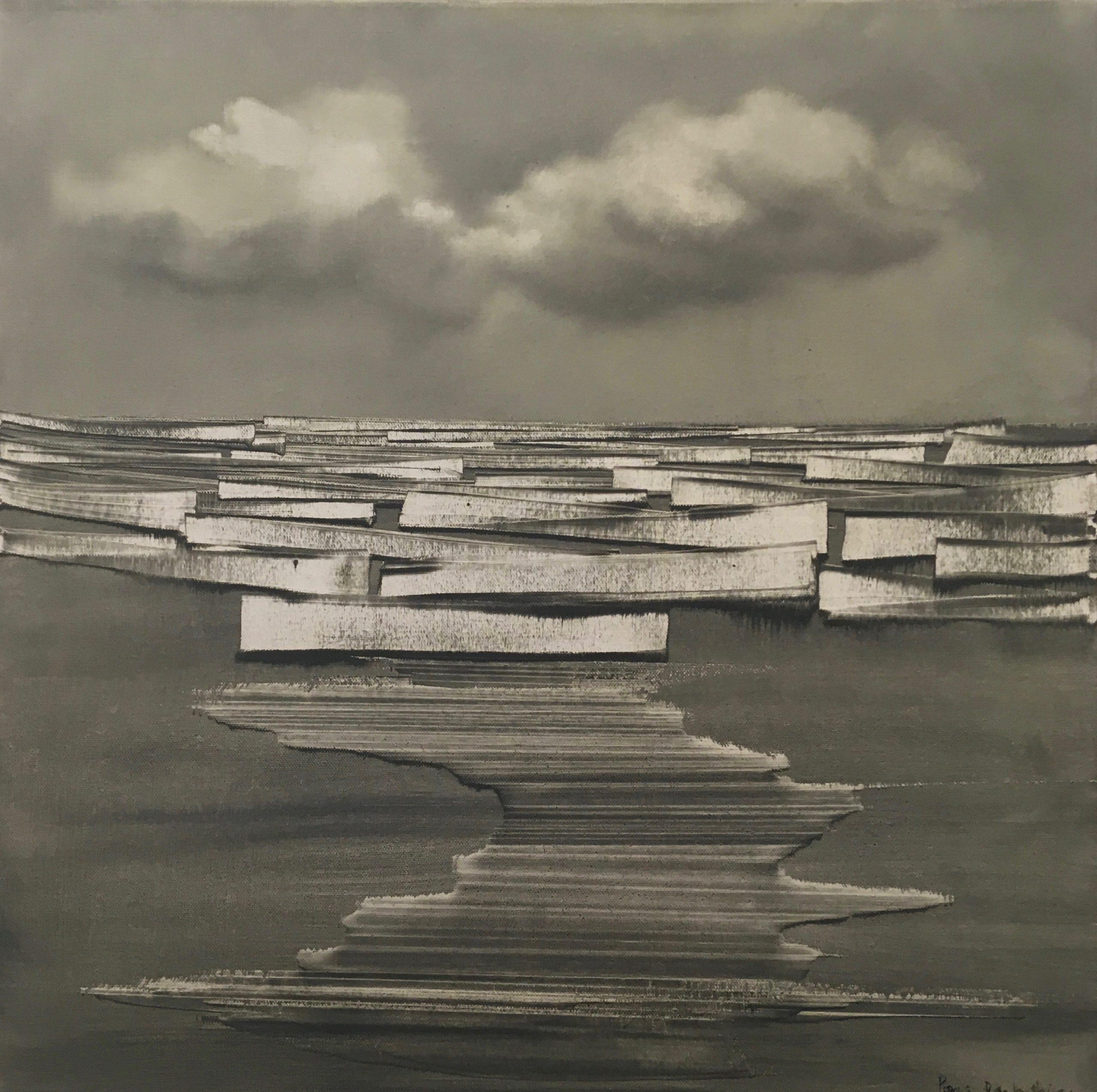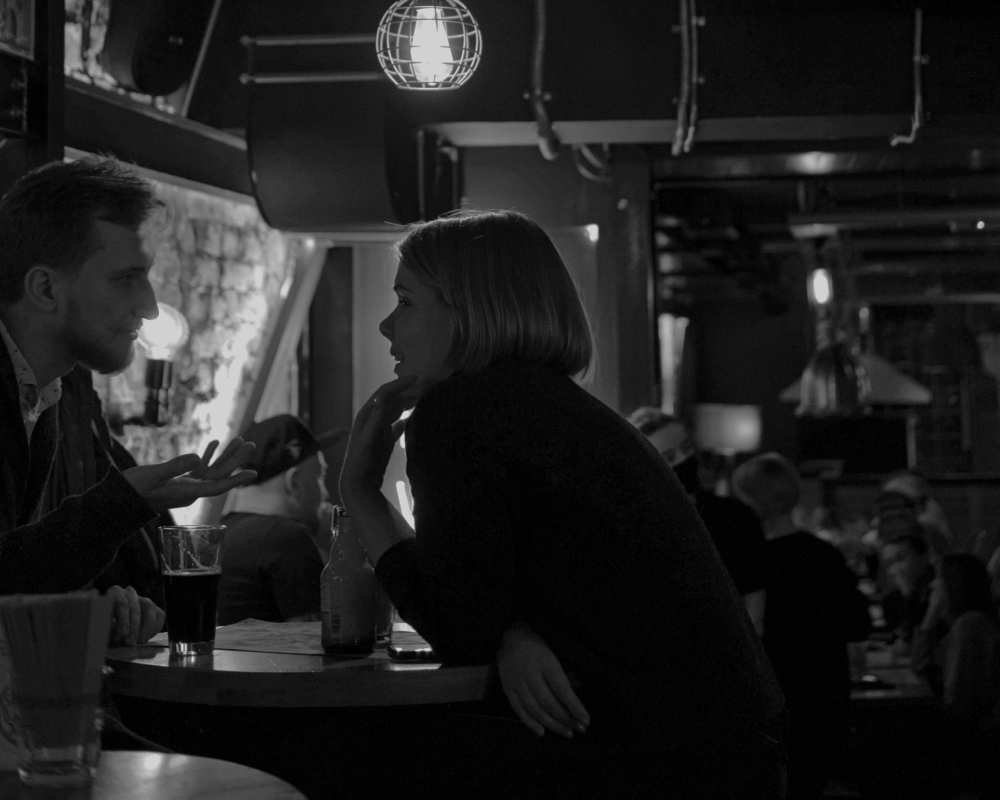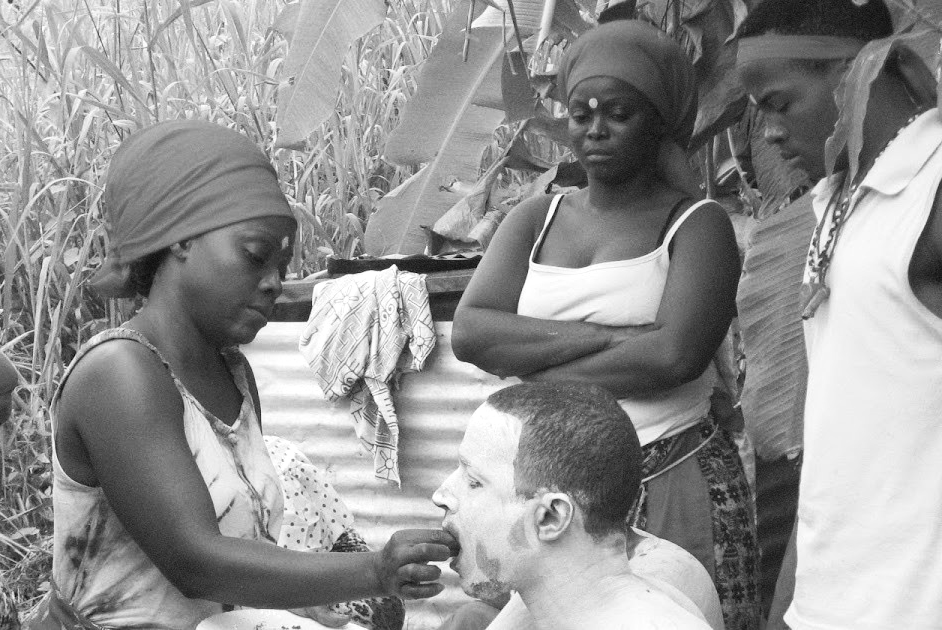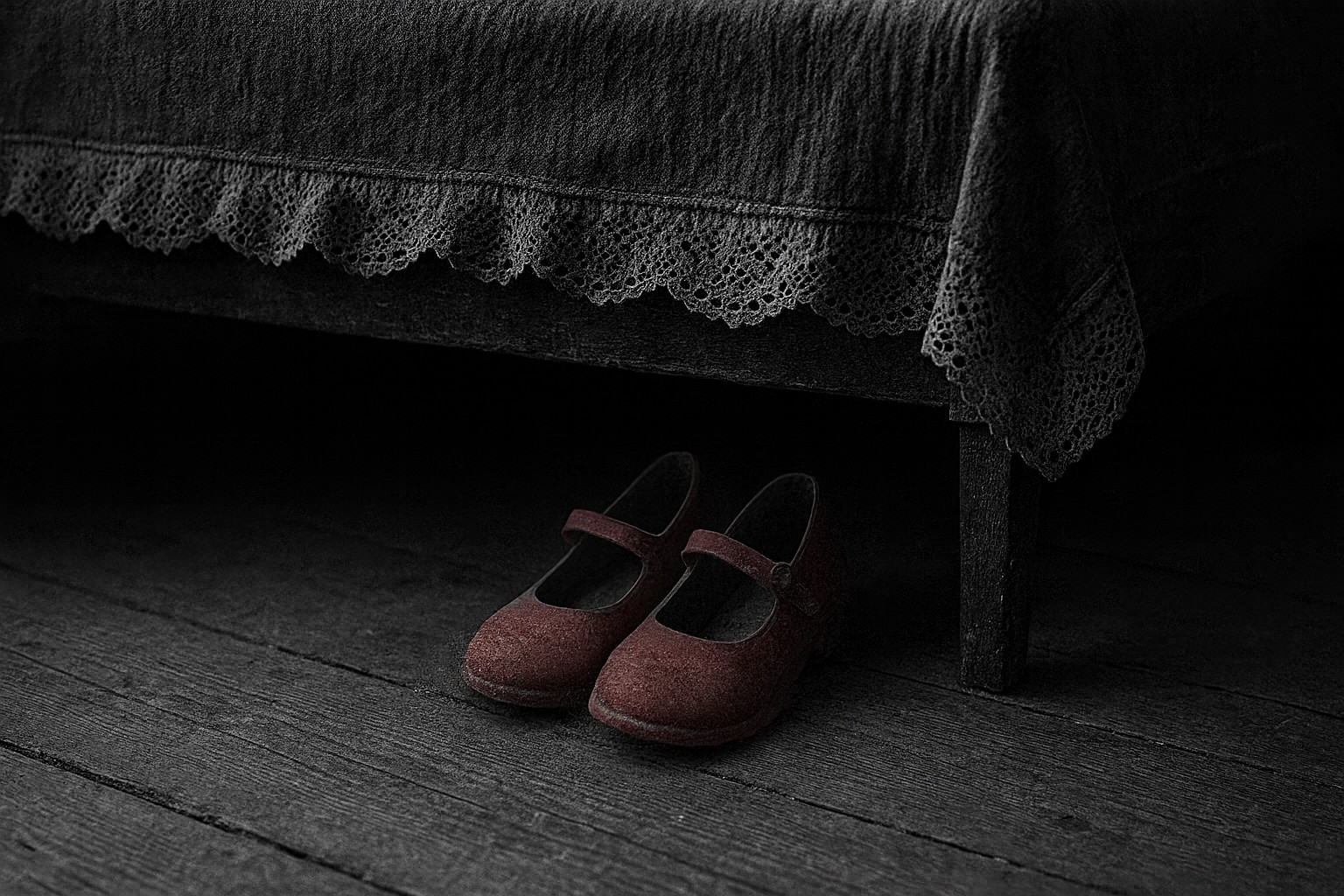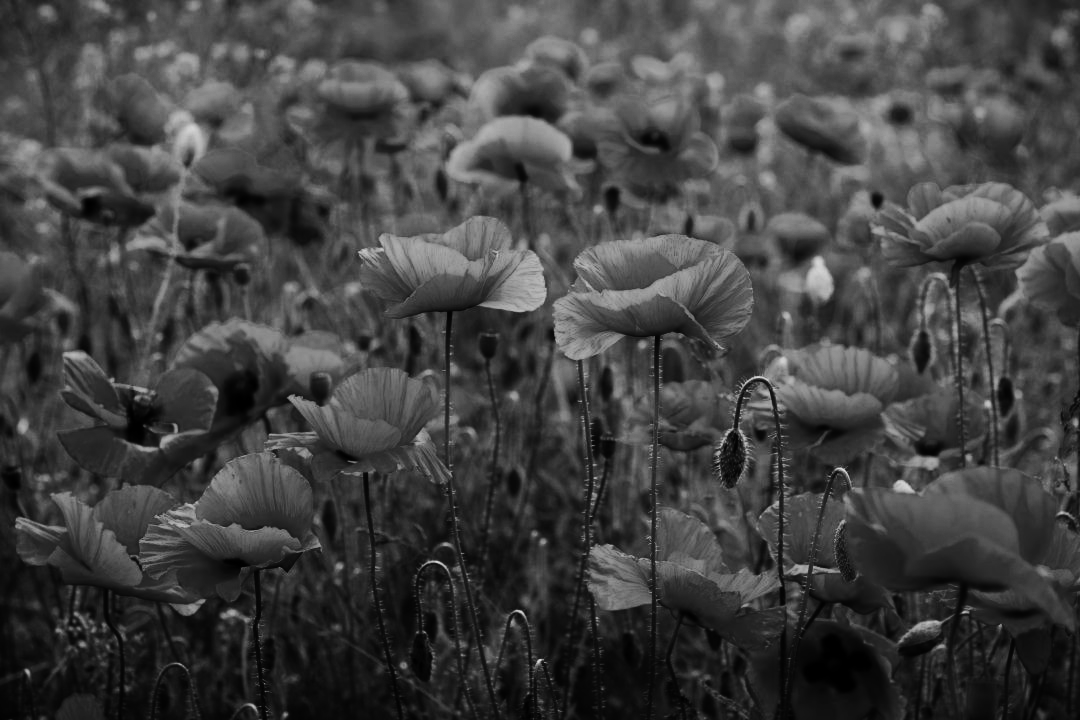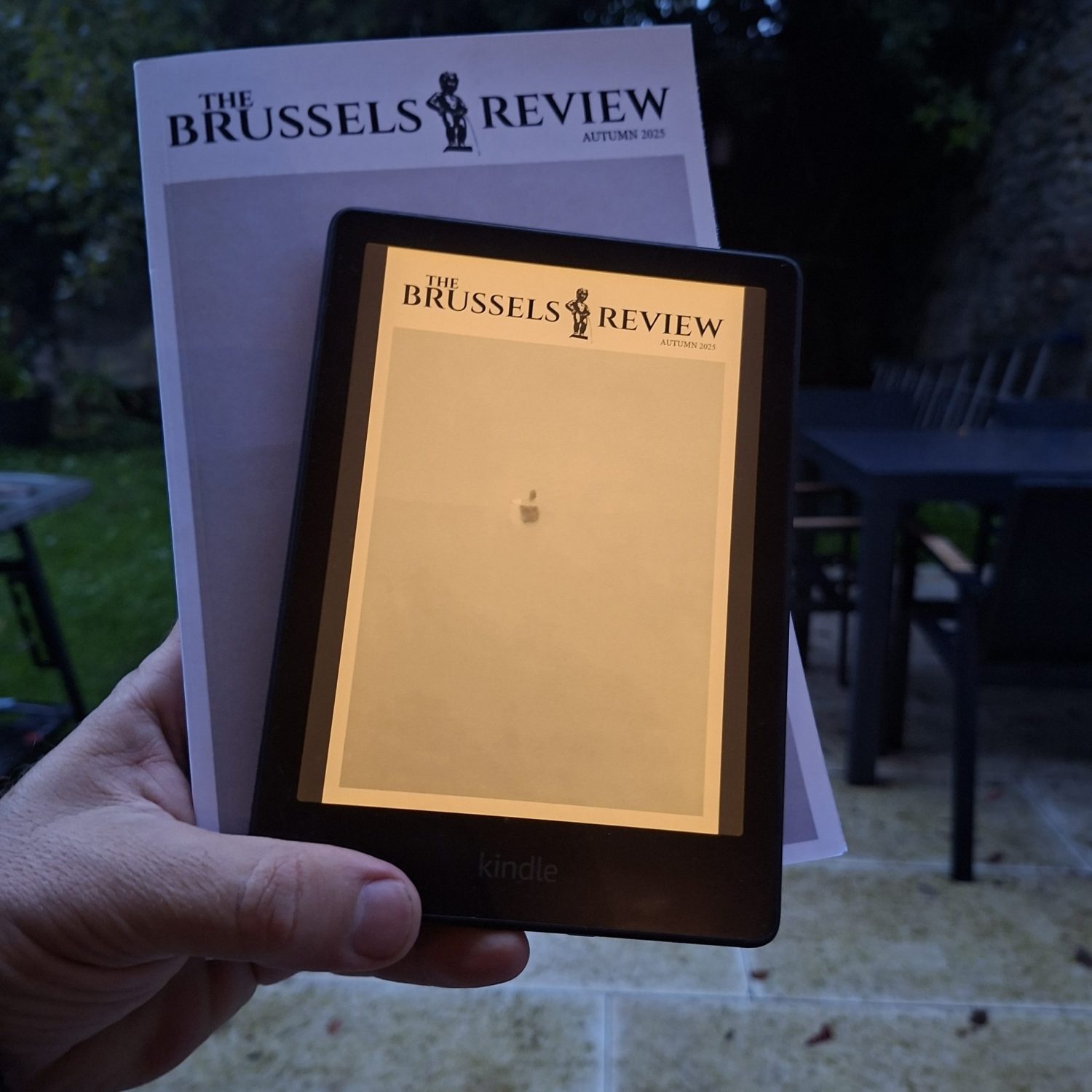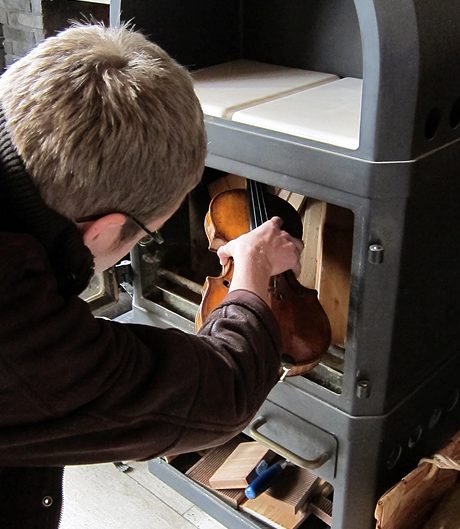Every new series begins with a declaration. With TBR Blanc, The Brussels Review opens a new cycle of anthologies—led by Blue and Dark—each conceived as a space where writers can create without prescription and readers can encounter fiction unbound by theme.
The title borrows from the French word blanc—white, blank, undefined. It is a word at once simple and inexhaustible: to physicists, it is light without hue; in common use, it suggests emptiness, detachment, even loneliness. Here, however, it stands for the opposite. Blanc signals openness, an untouched field waiting to be filled with invention. This anthology inaugurates that field, inviting writers to create without limits and readers to encounter stories unconstrained by trend or formula.
Kristine Durrant’s On Patrol renders a stark, visceral vision of war’s dehumanizing force and the agonizing choices it demands. Set in a provisional hospital, its caregiver-narrator confronts fractured humanity and an inner reckoning.
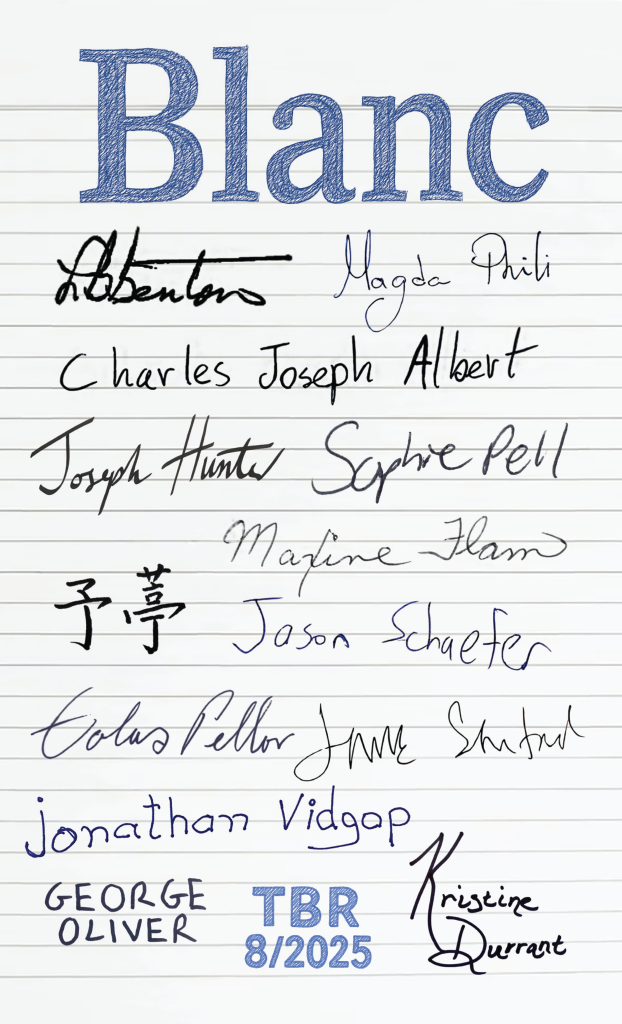
LB Benton’s Hadon Green reflects on misjudgment and overlooked heroism. Children’s cruel fascination with a reclusive figure—dubbed “the Diseased Man”—gives way to empathy as their assumptions collapse.
Yuting Zhao’s The Snail Girl and Other Horror Stories contrasts the warmth of childhood summers with the rupture of sudden violence. Granny’s bittersweet tales turn toward the surreal, forcing a confrontation with memory and pain.
Eolas Pellor’s The Newsie and the Orange Girl chronicles hardship and the fragile dignity of survival. In a world of poverty and unrest, Johnny Palumbo’s life is pierced by his bond with the enigmatic Orange Girl.
Jane Seaford’s The Millie Stories expose the raw texture of childhood trauma. Four-year-old Millie, after her father’s abrupt removal, is left to navigate her mother’s inability to provide, seeking stability in a fractured world.
Jonathan Vidgop’s The Cook, (translation by Leo Shtutin) twists dark humor and surreal anxiety into a meditation on truth, dependency, and identity, as a man spirals into obsession over the possible death of his domestic servant.
Sophie Pell’s Paul’s Diner traces the uncanny collision of past and present. Paul, a newly retired mechanic, uncovers buried secrets during a seemingly routine repair, disrupting the quiet of his new life.
George Oliver’s Impeded examines groupthink and alienation among soccer hooligans. Through Leftback’s inner conflict, it reveals a deeper struggle for autonomy beneath the chaos of violence.
Joseph F. Hunter’s Cherished Hurts follows Valentina, a woman polished on the surface yet fractured within. A brief encounter with an older man forces her to confront buried pain and the paradox of wounds both treasured and endured.
Maxine Flam’s Who Am I disorients with a narrator awakening stripped of identity, surrounded by self-proclaimed prophets. Theological debates blur the boundaries between madness, faith, and inspiration.
Magda Phili’s Via della Fortuna portrays a young bride’s quiet unraveling in Pompeii. Amid splendor and expectation, she contends with estrangement and the erosion of self.
Charles Joseph Albert’s In the Volkswagen transforms a Pyrenees drive into a meditation on memory and release. Within the humble car, Marieta Zapata rediscovers maternal tenderness and forgotten longing.
Jason Schaefer’s Stuck in a Closet with Vanna White collides generational friction with digital-age neurosis. Troy’s awkward rapport with Grandpa Jacoby, mediated by a family “cancel log,” spirals into a social-media implosion before an unexpected upheaval fractures the household.
Together, these thirteen stories reveal the imaginative breadth and emotional depth that flourish when writers are given freedom without prescription. TBR Blanc is not emptiness but canvas: an open field where language becomes color and constraint becomes catalyst.

As I mentioned, this volume is the third book in The Brussels Review’s collection series and the first in Blanc—the opening of a broader vision led by Blue and Dark. Each title will summon its own register, yet all share the same conviction: storytelling thrives where freedom leads.
This anthology is the brainchild of its editor Teresa Krasteva, whose vision for Blanc extends beyond this volume to the wider arc of the series coming, led by Blue and Dark. It is offered in the hope that readers will not only find stories of resonance here but also anticipate the ongoing evolution of The Brussels Review’s collections.



